- AdventHealth

Every 40 seconds, someone in the United States has a stroke. When time matters most, medical professionals at Shawnee Mission Health (SMH) are using specialized software called RAPID to quickly determine what types of treatment would be best for stroke patients.
May is American Stroke Month. A stroke occurs when a blood vessel (artery) that supplies blood to the brain bursts, or is blocked by a blood clot. The nerve cells in the affected area of the brain are damaged, and may die within four to six minutes. As a result, the part of the body controlled by the damaged section of the brain cannot function properly.
RAPID software uses data from a special CT scan to track blood flow to the brain. In around four minutes, it provides an accurate view of the parts of the brain that have been irreversibly damaged and the parts that may still be saved. The scans are immediately sent to neurologists, who can access the data on their computers and mobile devices to make quick recommendations for the best course of care. Previous methods used to track blood flow to the brain could take close to an hour, were less accurate and were not able to be accessed by doctors outside of the hospital.
The standard of care for eligible patients is a clot-busting drug, but some patients may need clot removal or endovascular therapy to effectively treat their stroke. Both techniques work best the earlier they are used.
"Using RAPID software, we have been able to confidently and rapidly identify patients who would benefit from an attempt at clot extraction," said Gordon Kelley, MD, Medical Director for the Stroke Center of Excellence at SMH. "While this represents a minority of patients, those who are eligible can be quickly transferred to the appropriate care centers to receive treatment. For the more than 90 percent of our stroke patients who are not eligible, they can receive comprehensive care at Shawnee Mission Medical Center, which prevents unnecessary transfers that are uncomfortable and costly for patients."
SMH treats more than 400 strokes and transient ischemic attacks(TIAs) each year. SMH recently received recognition for its commitment to quality stroke care, including The American Heart Association/American Stroke Associations Get With The Guidelines-Stroke Silver Plus achievement award, which recognizes SMH's commitment and success ensuring that stroke patients receive the most appropriate treatment according to nationally recognized, research-based guidelines. SMH also received the Target: Stroke Elite Honor Roll Award.
Although a stroke can happen to anyone, certain risk factors can increase the chances of a stroke. Those risk factors include:
- Hypertension high blood pressure
- Coronary Artery Disease Heart attack, Congestive Heart Failure
- Diabetes
- High cholesterol
Stroke risk factors, continued:
- Hyperlipidemia (elevated HDL lipids, triglycerides)
- Atrial Fibrillation/Atrial Flutter (heart dysfunction)
- Overweight/Obesity
- Tobacco use, smoking
- Drug use
- Alcohol use
- Sedentary lifestyle
- Carotid stenosis
- Migraine Headaches
- Sleep Apnea
- Hormone Replacement Therapy (HRT)
- Renal Insufficiency
- Depression
- Sickle Cell Anemia
- Peripheral Vascular Disease
- Pregnancy
- Prosthetic Heart Valve
- Previous Stroke or TIA
- Stress
The risk for stroke can be reduced by identifying and managing personal risk factors for stroke and understanding how to recognize and respond to signs and symptoms of a stroke. Get more information and resources from the American Stroke Association. If you are interested in seeing if you are at risk for a stroke, take our free, online seven-minute assessment.
Recent News
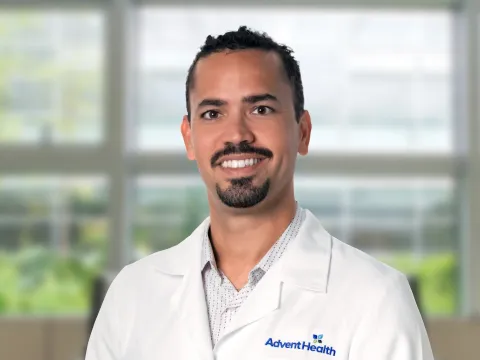
Albit Paoli, MD joins AdventHealth Medical Group Orthopedics & Sports Medicine
AdventHealth is pleased to announce that Albit Paoli, MD, has joined AdventHealth Medical Group Orthopedics & Sports Medicine at Calhoun and AdventHealth Medical Group Orthopedics & Sports Medicine at...

Dr. Phillips Center launches free Frontyard Holiday Festival supported by AdventHealth
The Dr. Phillips Center is launching its first-ever Frontyard Holiday Festival supported by AdventHealth.
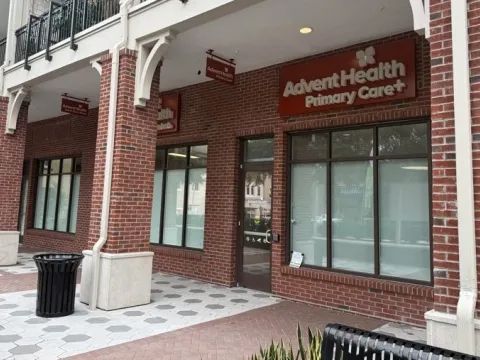
AdventHealth expands access to primary care in the heart of DeLand
AdventHealth has opened a new Primary Care+ location in the heart of downtown DeLand, giving residents a simple way to get everyday care close to where life happens. The primary care practice offers...

AdventHealth Rome Turkey Trot brings community together
Over 700 people gathered on Thanksgiving morning for the AdventHealth Rome Turkey Trot, raising $15,000 for Northwest Georgia Hunger Ministries.
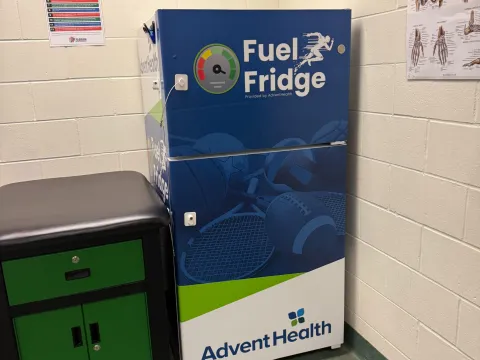
Fueling healthy futures for Flagler’s student athletes
Early practices, full class schedules, and evening games can push student athletes to their limits, and proper nutrition is essential to keeping them strong and focused. AdventHealth has introduced...
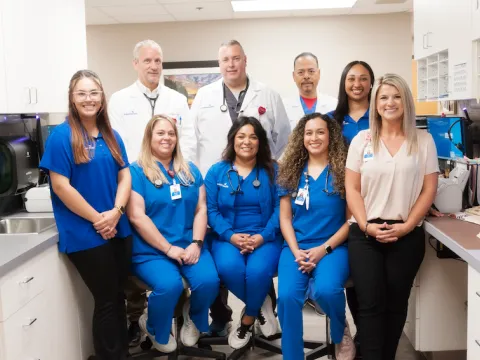
AHMG Cardiology at Dalton earns nuclear cardiology accreditation
AdventHealth Medical Group Cardiology at Dalton has earned a three-year accreditation in Nuclear Cardiology from the Intersocietal Accreditation Commission (IAC).

When seconds count: How a community of heroes saved one little girl
It was a day like any other — until the phone rang. For Ellison’s mom, that call froze time: “You need to get here right away.”

AdventHealth expands neurology services in West Volusia
Board-certified neurologist Dr. Zarmina Mufti has joined AdventHealth Medical Group and is now caring for patients at AdventHealth, expanding access to expert, whole-person neurological care for...

Central Florida organizations unite to ensure children and families facing food insecurity are fed over holiday break
AdventHealth, Orlando Magic, Florida Citrus Sports and Second Harvest Food Bank team up to support children across Orange, Osceola and Seminole counties.
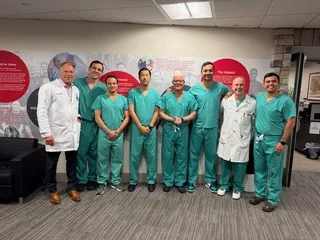
Pursuing excellence in knee surgery: Colorado Joint Replacement hosts Insall Traveling Fellowship
The international program that brings leading knee surgeons together to learn, collaborate and elevate the future of joint care.
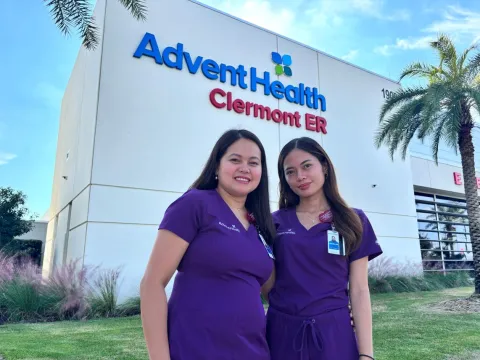
An ocean between them, and a calling that reunited them
After seven years apart, sisters Maricar Olsen and Ermeliza Ortiz were reunited in a place they both now call home. Their journey from the Philippines to Central Florida is a story of faith, family...
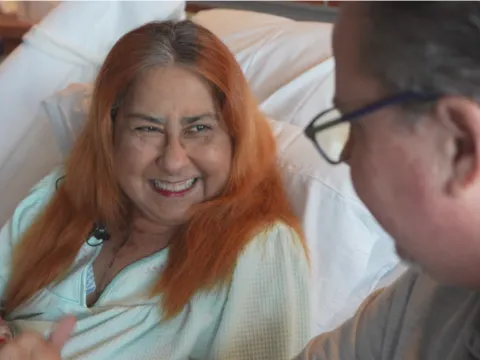
‘Definitely a miracle’: Puerto Rican woman receives rare heart-lung transplant in Florida
After only a month of waiting, Ivelese Nieves found herself among fewer than 70 patients nationwide each year who receive a rare, lifesaving operation.
